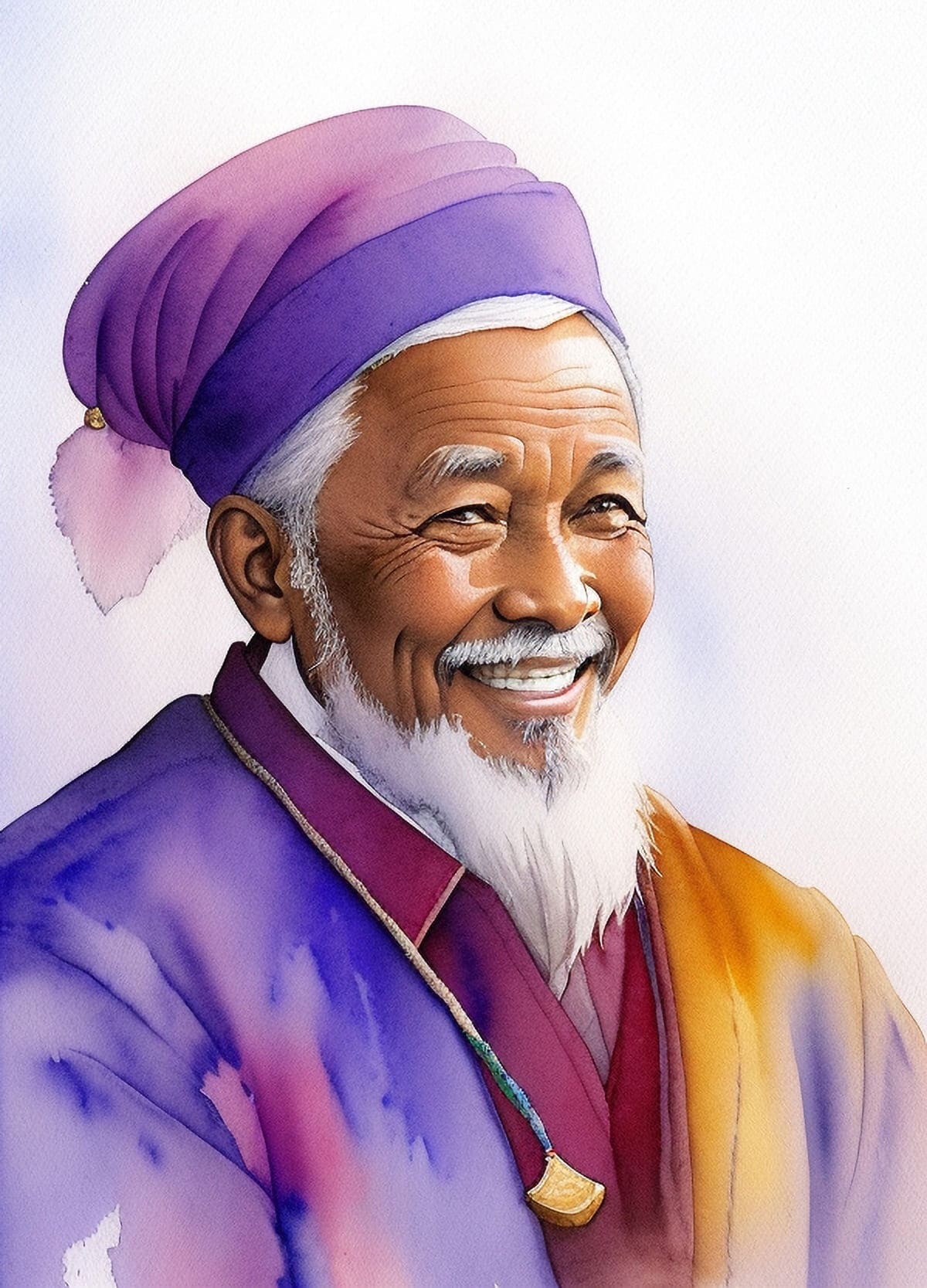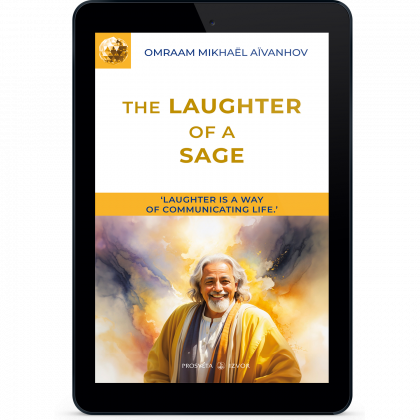The laughter of freedom
The expression of a joy that can also be called love
'Suffering and difficult inner states are often caused by minor details of no importance. But because you were not vigilant, these details eventually blocked everything within you. All it takes is a little dampness, a hair, some dust, for a device to stop working. All the various parts of the device are still there, not one is missing, but now it is no longer working. And despite the fact that you still have your spirit, soul, mind, heart and physical body, you now feel discouraged, devastated and lost... all that because of one speck of dust! So, now what?
As soon as there is any dust, blow on it and everything will return to normal.
You might say, ‘Blow?... What do you mean, ‘blow’?’ In our Brotherhood in Bulgaria, when brothers or sisters came to Master Peter Deunov to tell him about their problems, he sometimes started laughing; and his laughter made them feel better, for it was the laughter of a sage. Yes, laughing is a way of blowing. But of course when someone comes to you to share their problems or sorrows, I do not really advise you to apply this method.
Why?
Because your laugh may not yet be the same as the sage’s. And what is so particular about the sage’s laugh? It is a laugh of freedom. For what the sage has understood has freed him from the pointless burdens of life. He has gone beyond the regions of cloud and dust within himself – the astral plane and the lower mental plane – and risen to the regions where an eternal sun is shining.
And the sage’s only wish is to impart this hard-earned wisdom to those who are with him or who come to visit him. But it takes so much time to communicate to others what one has already understood oneself! The only thing therefore that the sage can communicate immediately is the joy he derives from this wisdom – the joy that fills his heart to overflowing – and his laughter is the expression of this joy, which we can also call love. And people are made to reflect because of the joy and love they receive from him. At the very least they ask themselves how they too can attain this state of consciousness.'
'Suffering and difficult inner states are often caused by minor details of no importance. But because you were not vigilant, these details eventually blocked everything within you. All it takes is a little dampness, a hair, some dust, for a device to stop working. All the various parts of the device are still there, not one is missing, but now it is no longer working. And despite the fact that you still have your spirit, soul, mind, heart and physical body, you now feel discouraged, devastated and lost... all that because of one speck of dust! So, now what?
As soon as there is any dust, blow on it and everything will return to normal.
You might say, ‘Blow?... What do you mean, ‘blow’?’ In our Brotherhood in Bulgaria, when brothers or sisters came to Master Peter Deunov to tell him about their problems, he sometimes started laughing; and his laughter made them feel better, for it was the laughter of a sage. Yes, laughing is a way of blowing. But of course when someone comes to you to share their problems or sorrows, I do not really advise you to apply this method.
Why?
Because your laugh may not yet be the same as the sage’s. And what is so particular about the sage’s laugh? It is a laugh of freedom. For what the sage has understood has freed him from the pointless burdens of life. He has gone beyond the regions of cloud and dust within himself – the astral plane and the lower mental plane – and risen to the regions where an eternal sun is shining.
And the sage’s only wish is to impart this hard-earned wisdom to those who are with him or who come to visit him. But it takes so much time to communicate to others what one has already understood oneself!
The only thing therefore that the sage can communicate immediately is the joy he derives from this wisdom – the joy that fills his heart to overflowing – and his laughter is the expression of this joy, which we can also call love. And people are made to reflect because of the joy and love they receive from him. At the very least they ask themselves how they too can attain this state of consciousness.'
Text taken from the book "The Laughter of a Sage", chap. 7 "The sage’s lamp is filled with joyfulness".





